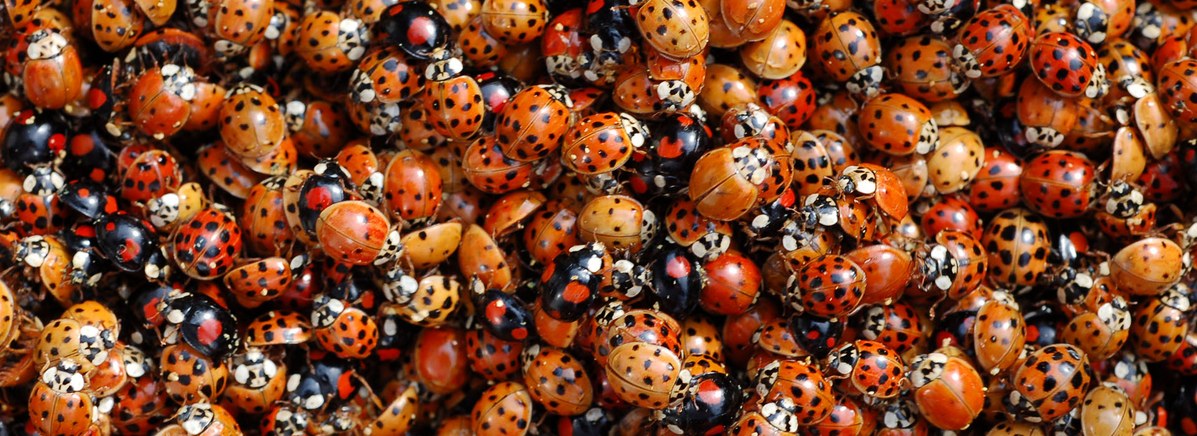Insect Biotechnology and Bioresources
- Short description
-
In terms of biodiversity, insects are the most successful organisms: there are more than a million species described. The development of this biodiversity was associated with the acquisition of a huge arsenal of molecules with which insects can secure their food supply or defend themselves against diseases and parasites. The scientists of the Campus Research Focus “Insect Biotechnology and Bioresources“ employ biotechnological methods to use insects as a resource for new molecules for applications in medicine, crop protection and industrial biotechnology. One of the objectives of the research being conducted in Europe’s first cluster for insect biotechnology and bioresources is the identification and further development of active agents against infectious diseases, for pest control and against the spreading of insect-borne diseases, as well as new sources of protein to feed livestock. The leading-edge technology developed in this way has great economic and innovative potential that is being leveraged by the synergy potential of Central Hessen as a hub of science and technology with its research-oriented universities of Giessen and Marburg and the application-oriented research of the Technische Hochschule Mittelhessen University of Applied Sciences as well as that of the partners of the Fraunhofer Society. The interinstitutional cooperation is also being reflected in terms of infrastructure: In October 2020, a new research building was inaugurated, bringing together researchers from the Fraunhofer Institute for Molecular Biology and Applied Ecology IME, the Fraunhofer Project Group for Bioresources, and participating working groups from Justus Liebig University under one roof.
- Successful Joint Research
-
- Participation in LOEWE-Centre for Translational Biodiversity Genomics
Project: Animal Venomics (Prof. Vilcinskas)
Funding period: 2018 to 2024 (1st Funding Period) - LOEWE Centre: Insect Biotechnology & Bioresources, incl. Cooperative Postgraduate School Bioresources and Biotechnology
Funding period: 2011 to 2013 as LOEWE Research Cluster, 2014 to 2022 as LOEWE Centre - Collabroative project of Fraunhofer Society and Max Planck Society: Application of Insect-associated Microbes in industrial Biotechnology (AIM-Biotech)
Funding period: 2015 to 2019 - BMBF Project: Insect-derived anti-Infectives from Indonesia (Triple-In) Funding period: 2015 to 2018
- EU Project (biodivERsA-Programm): EXOTIC: EXperimentally Orientated genomics to Tackle Insects adaptive Challenges during bioinvasions: the ladybird Harmonia axyridis as a model species
Funding period: 2013 to 2017 - Participation in DFG Priority Programme SPP 1399: Host-Parasite Coevolution – Rapid Reciprocal Adaptation and its Genetic Basis
Project 1: Reciprocal genetic diversification and adaption of host proteinase inhibitors and parasite-associated proteinases during coevolution of insects and entomopathogenic fungi (VI 219/3-1)
Funding period: 2011 to 2013
Project 2: The role of epigenetics in host–parasite coevolution (VI 219/3-2)
Funding period: 2014 to 2016 - LOEWE Research Cluster BioIM: Bioengineering & Imaging incl. Postgraduate School Bioengineering and Imaging
Funding Period: 2008 to 2013 - Six Junior Research Groups within the DFG Emmy Noether Programme, the Fraunhofer Attract Programme, the Alexander von Humboldt Foundation and the Volkswagen Foundation
- Numerous industrial projects
- Participation in LOEWE-Centre for Translational Biodiversity Genomics
- Research Infrastructure
-
Research building for the Fraunhofer Institute for Molecular Biology and Applied Ecology IME, Branch Bioresources
- Research Environment
-
Fraunhofer Institute for Molecular Biology and Applied Ecology
(cooperation with the Campus Research Focus)
- Contact person
-
Justus Liebig University Giessen
Prof. Dr. Andreas Vilcinskas
Faculty Agricultural Sciences, Nutritional Sciences, and Environmental Management
Department of Insect Biotechnology
Heinrich-Buff-Ring 58
35392 Gießen


